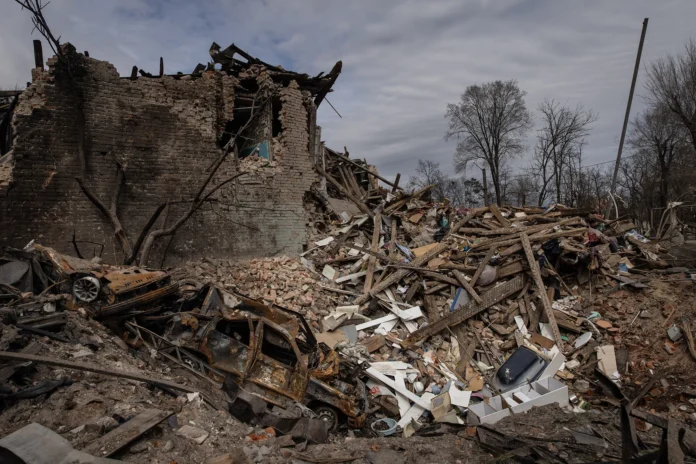Author: Jeremy Scahill
Affiliation: Senior Correspondent and Founding Editor of the Intercept
Organization/Publisher: The Intercept/ First Look Institute
Date/Place: April 1, 2022/New York, USA
Type of Literature: Opinion
Word Count: 1708
Link: https://theintercept.com/2022/04/01/russia-ukraine-proxy-war-washington-diplomacy/
Keywords: Global Agenda, Proxy War, Sanctions, War Industry
Brief:
A cohesive anti-Russian rhetoric has been coming from the West since the Ukraine war started, transmitted primarily through the media, government statements and arms support. The war in Ukraine is one of aggression as well as a part of a larger geopolitical conflict between the US and Russia; the economic warfare launched by the West has the explicit intention to undermine the Russian regime if not change it completely. However, it shouldn’t be assumed that Western support for Ukraine is in its best interest or that further escalation is to ensure world security. Negotiations are the common sensical solution for the conflict and it should not be confused with appeasement. Ukraine will bear the costs of the American global agenda, which has an obvious hawkish insistence on decisive Russian defeat. Ukraine itself has accepted neutrality and sought further negotiations regarding the fate of its eastern territories, and the prolonging of war by the US-EU bloc only complicates the situation and raises the costs for the Ukrainian people. The biggest winner is the war industry, having the largest defense budget yet, which reaches around $813 billion while NATO countries like Germany are committing to more arms buying and selling. The US still has not achieved full support outside of its close allies, as countries such as China, India, Israel, Turkey and UAE are not following the US agenda of sanctions and vilification against Russia. The war can only end with negotiations—but proxy wars could prolong the suffering and may escalate things beyond control.
Critical Commentary: Although the author discusses Russian concerns regarding Ukraine, he fails to showcase the explicit American role in causing the conflict in the first place by pushing Russia too far. The author puts the larger amount of responsibility on the US for making the war worse by exploiting it for its own goals; specifically, its hawkish behavior and unwillingness to negotiate are hindering any peaceful solution as a result. Overall, the author showcases the short sightedness on the part of the US and its allies regarding foreign policy due to ever aggressive approaches to other powers.
By: Omar Fili, CIGA Research Assistant




